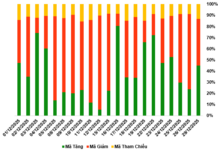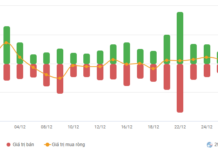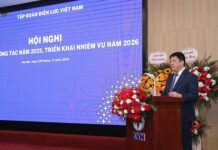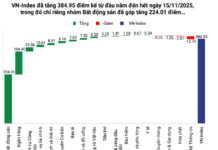During the afternoon of November 28, as authorized by the Prime Minister, Deputy Prime Minister Ho Duc Phoc presented to the National Assembly (NA) a draft resolution on reducing the value-added tax (VAT) rate.
Extending the Period of VAT Reduction
According to the proposal, the government suggests reducing the VAT rate by 2% for goods and services currently subject to a 10% rate, excluding certain categories such as telecommunications, information technology, finance, banking, securities, insurance, real estate, metals, metal products, mining products (excluding coal mining), coke, refined petroleum, chemicals, and special consumption tax goods and services. This reduction will be effective from January 1, 2025, to June 30, 2025.
Deputy Prime Minister Ho Duc Phoc emphasized that this VAT reduction would directly reduce the costs for people consuming goods and services for their daily lives. For businesses, the VAT cut will help reduce production costs and lower product prices.
Most members of the Finance and Budget Committee agreed with the necessity of issuing a resolution to reduce VAT. During the subsequent discussion in the hall, most NA deputies also approved of the continued 2% VAT reduction to support businesses and people in overcoming difficulties and stabilizing production and business activities, thereby contributing to socio-economic development.
NA deputy Nguyen Truc Son (from Ben Tre province) stated that the results of the 2% VAT reduction policy in 2022 have yielded clear benefits, indicating that continuing this reduction is the right decision.
Some opinions emphasized that consumption is one of the critical pillars for 2025. Therefore, this resolution requires a longer implementation period. NA deputy Tran Hoang Ngan (from Ho Chi Minh City) proposed extending the duration of the resolution to one year instead of the government’s suggested six months.
Agreeing with the 2% VAT reduction, NA deputy Pham Van Hoa (from Dong Thap province) suggested avoiding a “choppy” six-month reduction. He recalled that last year, when the government proposed a six-month VAT reduction, there were suggestions to make it a year-long reduction instead. “Can the government guarantee that after six months, they will not propose another 2% VAT reduction to the NA?” Mr. Hoa asked, requesting the government’s consideration.
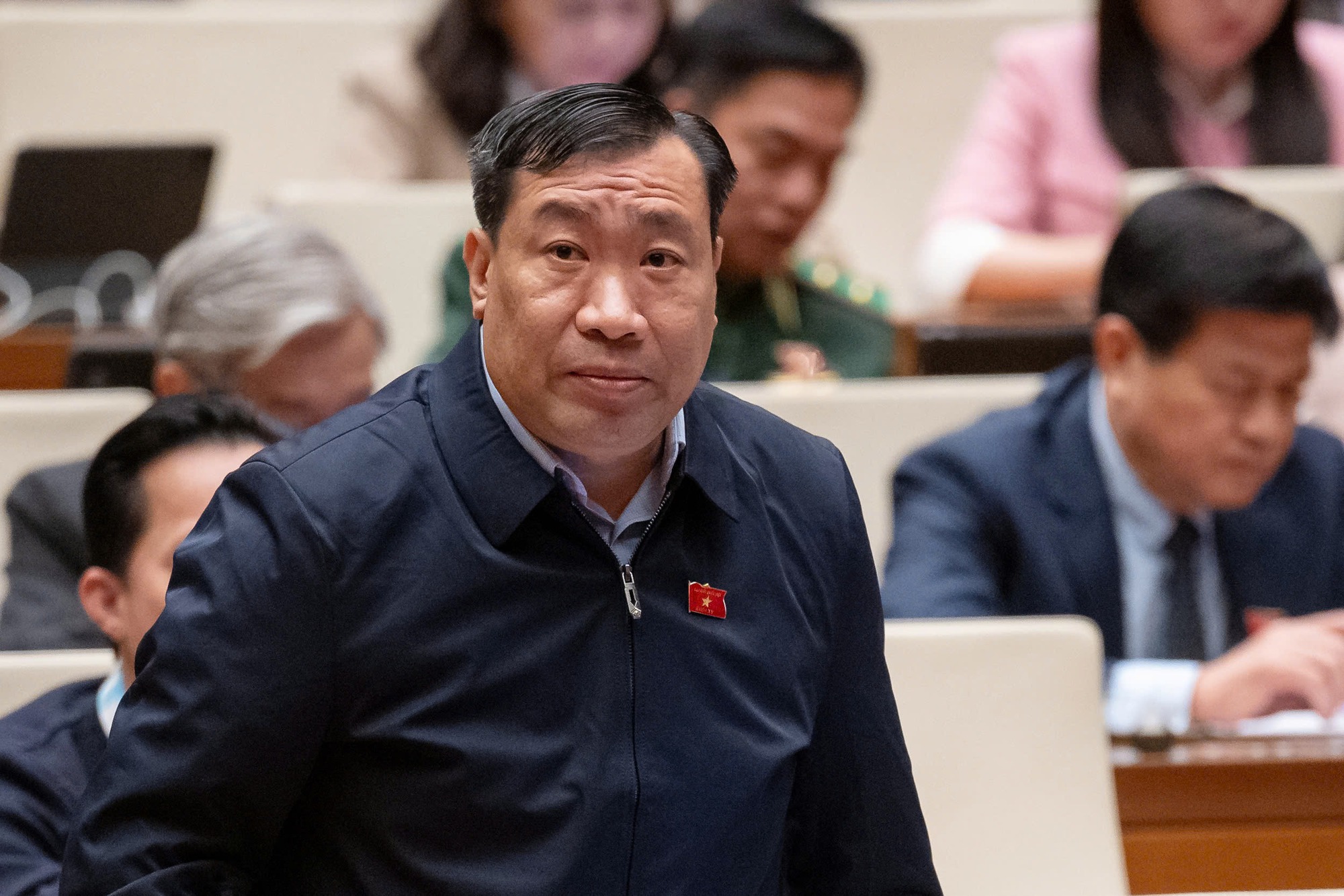
NA deputy Thach Phuoc Binh suggested that while public utility organizations are eligible for corporate income tax exemption or reduction, the press has not been granted similar support mechanisms. Image: HO LONG
Proposing a 10% Tax Rate for the Press
On the same day, the NA discussed in the hall the draft Law on Enterprise Income Tax (EIT) amendments. In this draft law, the drafting committee proposed reducing the EIT rate for press organizations from 20% to 15% for online newspapers, television, and radio, while maintaining the 10% rate for print newspapers as per current regulations.
Many NA deputies suggested further reducing the EIT rate compared to the draft law to support press agencies, as the state budget would not decrease significantly, but this would be a great encouragement for the press.
NA deputy Thach Phuoc Binh (from Tra Vinh province) stated that press agencies operate with a non-profit objective, serving political tasks, propaganda, and education rather than business purposes. Applying the common EIT rate of 20% to their income from activities outside their main tasks, such as advertising and event organization, creates a significant financial burden. Mr. Binh cited that public utility organizations are eligible for corporate income tax exemption or reduction, but the press has not been granted similar support mechanisms, despite their crucial role in society.
He pointed out that, in the context of competition with digital platforms, advertising revenue is decreasing, causing difficulties for many press agencies. Unstable incomes, such as sponsorships and small-scale advertising contracts, are still taxable. Therefore, Deputy Binh proposed applying a preferential tax rate of 10% or possibly lower for income from activities outside the main political tasks, such as advertising and event organization, and exempting corporate income tax on sponsorships and donations to press agencies to create a supportive resource for fulfilling political tasks and communication.
Agreeing with this, NA deputy Do Chi Nghia (from Phu Yen province) emphasized the current difficulties faced by the press, including the declining income and livelihood of reporters and editors, along with various challenges to overcome. While income is decreasing, tasks are increasing, and competition for information with social networks demands better quality and more investment in journalism.
The deputy, who used to be the editor-in-chief of the Dai Bieu Nhan Dan newspaper, stated that reducing taxes is an opportunity and a condition to support press agencies in better fulfilling their tasks, and there is a need for more robust policies. He analyzed that the direction of digital transformation is entirely correct and necessary, and the press must take the lead. Taking the lead not only involves investing in machinery but also fundamentally changing the way of training and supporting reporters, which is very costly. Therefore, he suggested reducing the tax rate to 10% for all press types.
In his explanation, Deputy Prime Minister Ho Duc Phoc conveyed that the drafting committee also wishes to apply a 10% EIT rate for print newspapers and other press types. “If the NA agrees, we propose a 10% rate,” he affirmed.
Today (November 29), the NA will vote on the Law on Public Investment (amended); the Law on Fire Prevention and Fighting and Rescue; and the Law on Amending and Supplementing Some Articles of the Law on Planning, the Law on Investment, the Law on Investment in the Form of Public-Private Partnership, and the Law on Bidding. During the day, the NA will also discuss the draft Law on Management and Investment of State Capital in Enterprises.
Increasing the Retirement Age for Military Officers
On the morning of November 28, the NA passed the Law on Amending and Supplementing the Law on Officers of the People’s Army of Vietnam. The law will take effect from December 1, 2024.
The retirement age of officers in the military will be increased according to their ranks. Specifically, for captains, the retirement age will be 50, an increase of four years compared to the current regulation.
There are adjustments for other ranks as well: majors will serve until the age of 52 (an increase of four years), lieutenant colonels until 54 (an increase of three years), colonels until 56 (an increase of two years), and generals until 60 (an increase of one year for males and three years for females). The retirement age for generals remains unchanged at 60 for males. Female generals will now have a retirement age of 60, an increase of five years. Officers may have their service extended beyond the retirement age for a maximum of five years. In some special cases, the Minister of National Defense can decide to extend their service even further.
Is Early Retirement on the Cards for Preschool Teachers?
The proposed Teacher Law features a range of unique policies designed to support teachers. These include competitive allowances, reasonable retirement ages for early childhood educators, and provisions for highly qualified teachers.
Who Can Retire Early Without a Pension Penalty?
Retirement often comes with a reduction in pension benefits for early retirees. However, are there any exceptions to this rule? In certain scenarios, early retirees may retain their full pension entitlements or even receive additional benefits. Understanding these exceptions is crucial for those considering early retirement, as it could significantly impact their financial planning and security during their golden years.
What is the Retirement Age for Civil Servants in Leadership Positions?
“For those who wish to retire early, the new policy offers a pathway to do so. This means that employees can now choose to retire earlier and receive their pension benefits as per the law. This is a significant development, offering flexibility and choice to our dedicated civil servants and officers.”


